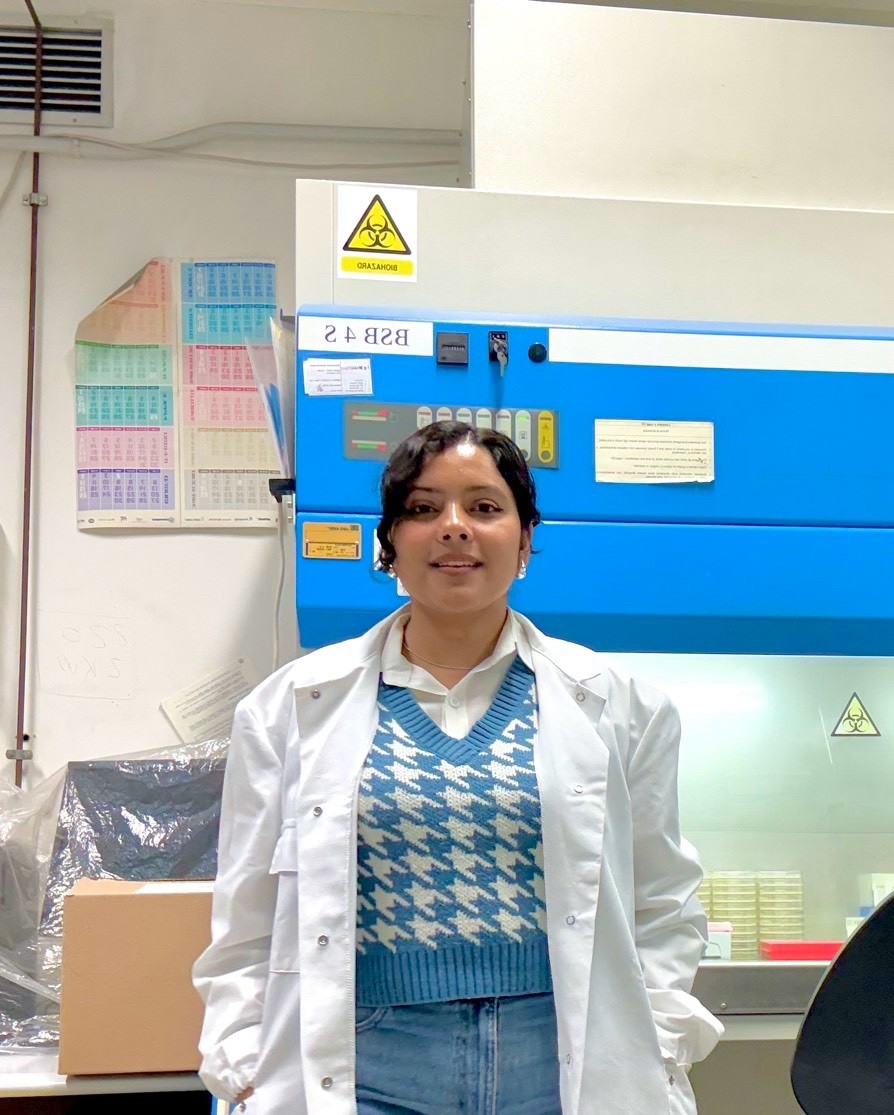How a Nepali Scholar Received the Erasmus Mundus Scholarship for a Fully Funded Master’s in Plant Health in Sustainable Cropping Systems at the University of Padova and Polytechnic University of Valencia
University: University of Padova (Italy), Polytechnic University of Valencia (Spain)
Degree: Erasmus Mundus Joint Master’s in Plant Health in Sustainable Cropping Systems
Previous Education: Bachelor’s in Agricultural Science – Agriculture and Forestry University, Nepal
Scholarship: Erasmus Mundus Scholarship – Fully Funded
Other Offered Scholarships (if any): Graduate Research Assistantships in the U.S. (Master’s at the University of Tennessee and phd at the University of Texas A and M)
Social Media
LinkedIn: linkedin.com/in/biju-adhikari-732ab521a/

The Journey
Hi! I’m Biju Adhikari from Nepal. I’m currently pursuing an Erasmus Mundus Joint Master's Degree in Plant Health in Sustainable Cropping Systems. As part of the program’s mobility structure, I began my first year at the University of Padova in Italy and will be continuing my second year at the Polytechnic University of Valencia in Spain.
Educational Background
Before joining the Erasmus Mundus program, I completed my Bachelor's degree in Agricultural Science from the Agriculture and Forestry University in Nepal. My undergraduate thesis focused on using botanical extracts to control pests in cabbage, which sparked my interest in plant protection. After graduation, I worked for a year at the National Plant Pathology Research Centre in Kathmandu. This hands-on experience in plant disease research significantly strengthened my academic foundation and helped me qualify for the prestigious Erasmus Mundus scholarship.
How Did You Prepare to Apply to the Institutions?
I had set my sights on this scholarship as early as the second semester of my bachelor's program. From that point on, I worked diligently to maintain a strong GPA, develop a competitive CV, and gain relevant experience. I also consulted with seniors who had previously been awarded the scholarship, which helped me avoid common pitfalls. I prepared for the TOEFL to demonstrate English proficiency and completed a one-year internship to showcase practical skills in my field.
How Did You Prepare to Apply for the Scholarship?
I applied to multiple programs, including Graduate Research Assistantships in the U.S., where I was selected for one Master’s and one Ph.D. opportunity (Master's at the University of Tennessee and phd at the University of Texas A and M). However, the start dates for those programs were delayed. Meanwhile, I received the Erasmus Mundus scholarship offer, which had always been my top choice due to its academic quality and the cross-cultural exposure it offers. The selection process was highly competitive, with applicants from all over the world. I believe my research background, practical skills, and alignment with the program’s objectives helped my application stand out.
Could You Briefly Discuss the Erasmus Mundus Program You Pursued and the Specific Field of Study It Focused On?
The Erasmus Mundus program I’m enrolled in focuses on Plant Health in Sustainable Cropping Systems. It emphasizes integrated plant protection approaches, including pest management, disease control, and weed science, aiming to promote environmentally sustainable agricultural practices. As a person who is enthusiastic about plant pathogens, this program also focuses on that aspect, which will give me the opportunity to delve more into the world of pathogens and experience the research happening in the European context.
How Did the Cost of Living Vary Across the Countries You Studied In? Which Country Was the Most Affordable or Expensive, and How Did You Manage Financially?
In terms of living costs, I found Italy to be quite manageable and affordable, especially with the monthly scholarship stipend. Spain, where I’m currently studying, has a similar cost of living. Careful budgeting and the consistent financial support from the program made it relatively easy to manage my expenses in both countries.
Did You Face Any Language Barriers, and if So, How Did You Overcome Them? Did the Language of Instruction Change From One Country to Another?
Language was definitely a challenge at first, especially in everyday interactions, as not everyone speaks English in Europe. However, I took the initiative to learn basic Italian and Spanish (A1 level), which helped me significantly. It allowed me to carry out daily tasks like shopping, ordering food, and navigating my surroundings more confidently.
Would You Recommend the Erasmus Mundus Program to Others? What Advice Would You Give to Someone Considering This Scholarship?
I would absolutely recommend the Erasmus Mundus program to anyone interested in an international academic experience. It offers more than just education; it’s a chance to meet diverse people, build meaningful connections, and gain cultural exposure that can shape your personal and professional life. My advice for prospective applicants is to start early, focus on building a strong profile, and seek guidance from alumni to maximize your chances.
Looking Back, Would You Have Done Anything Differently During Your Time in the Program?
I wish I could have learned the languages that I had to learn as a part of my course earlier, look for a summer internship somewhere, plan my thesis early, and been more proactive in networking.
Want to submit your
scholarship journey?
Submit Your Story Here!
More Scholarship Recipients

My name is Zara Qaiser. I’m originally from Singapore and Pakistan (yes, both!), and I am now pursuing a PhD in Public Pol .... Read more
- American University
- Columbian College of Arts & Sciences Doctoral Fellowship
- Economics
- Fully Funded Scholarships
- Graduate Assistantships
- Graduate Merit Award (American University)
- Pakistani Nationality
- Ph.D. Scholarships
- Public Administration
- Public Policy
- Singaporean Nationality
- The George Washington University
- United States
- University of Massachusetts Boston

Hello! My name is Sakshi Barhai, and I am from Pithora, a small town in the state of Chhattisgarh, India. After clearing the .... Read more

My academic journey toward biomedical science has been shaped by both curiosity and reality. Growing up in Pakistan, I obser .... Read more

Leave A Comment